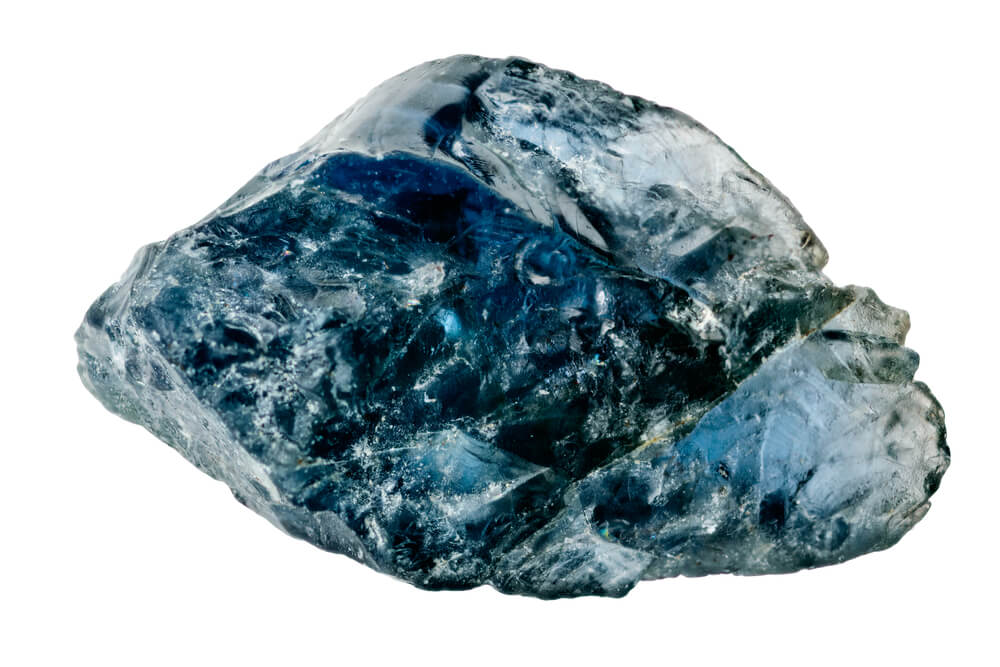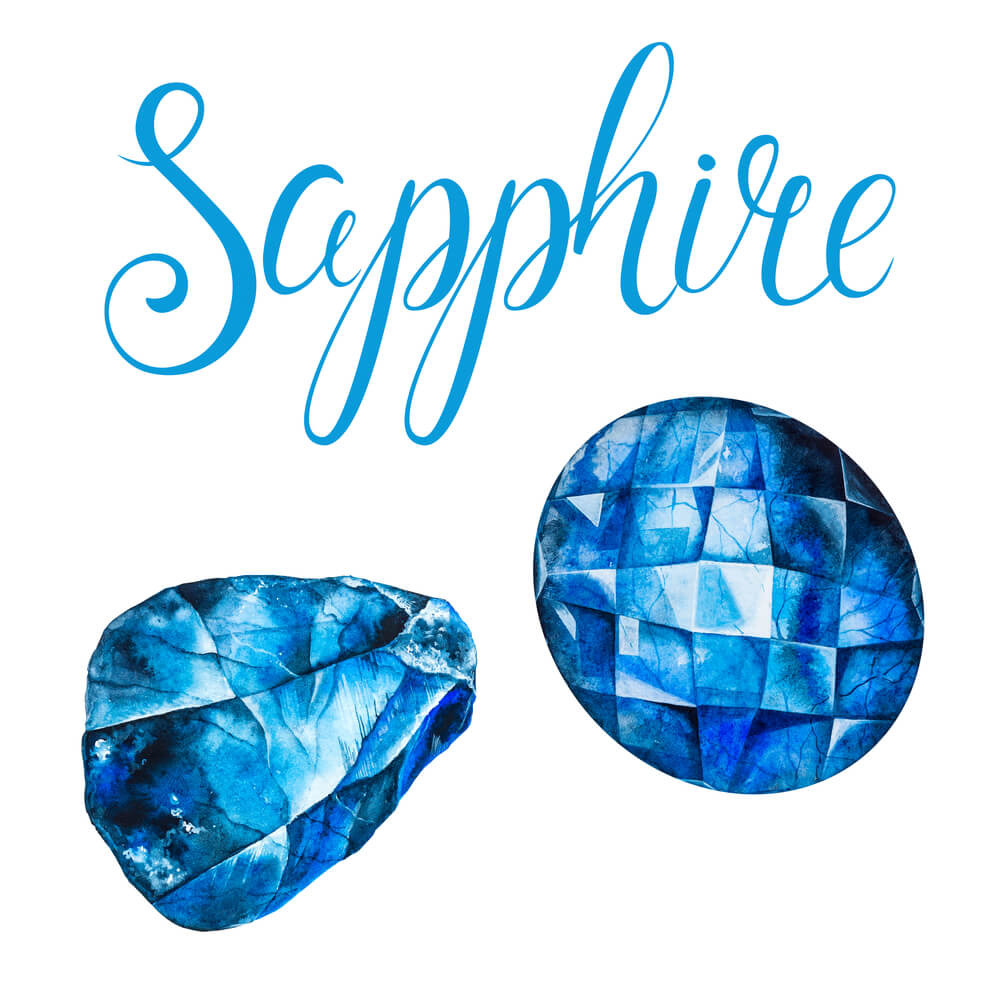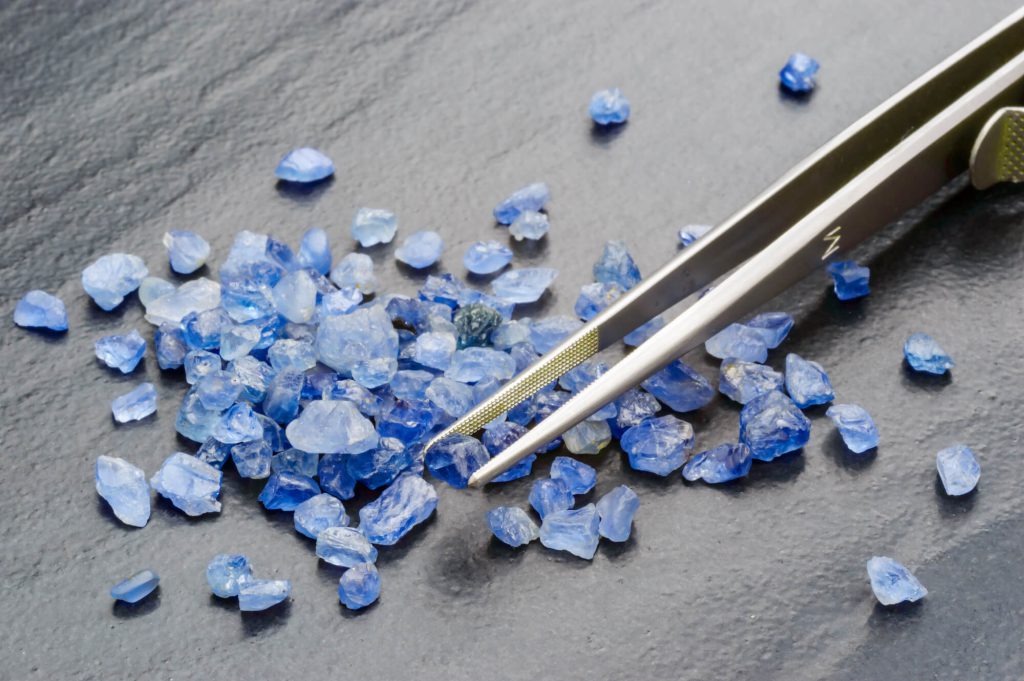Introduction to Sapphire
Sapphire, the September stone, embraces celestial hope and faith. The striking blue color of sapphire captivates humanity for centuries and is an emblem of wisdom, royalty, and divine favor. Also, this gemstone in tradition holds as a fifth and forty-fifth wedding anniversary gift.
| ASPECT | DETAILS |
|---|---|
| Birthstone Month | September |
| Birthstone | Sapphire |
| Symbolism | Wisdom, Virtue, and Good Fortune |
| Origins | Found in various countries that comprise Myanmar, Kashmir, Sri Lanka, Madagascar, and Australia |
| Mythology and Beliefs | Associated with divine favor, truth, faithfulness, and nobility. Considered both a symbol of power and strength, but also of kindness and wise judgment |
| Physical Properties | Ranks 9 on the Mohs scale, second only to diamond when talking about hardness |
| Jewelry Use | Perhaps, it is used in all sorts of jewelry, as conventional as rings to earrings, pendants to bracelets. Brilliant blue color, but appears in a number of the other shades apart from red |
| Care and Maintenance | Clean by warm soapy water and mild soft brush, avoid chemicals |
| Psychological and Emotional Significance | Helps for mental clarity, spiritual insight, and emotional balancing |
| Choosing a Birthstone | Sapphire is considered to be the birthstone for those who would like to ensure wisdom, virtue, and good fortune in their life |
Origin and History of Sapphire
The name sapphire was derived from the Latin workd ‘saphirus’ and Greek word ‘sapheiros’, both which means something blue. Sapphire originates from gemstone called corundum which is believed to be hard since it’s only second to diamonds. The gemstone occurs in numerous colors owing to various trace element, however, most people associate the mineral with blue.
Historically, sapphires have been held high as the 800 BC when the rulers of ancient Persia believed that a sapphire reflected a piece of the sky and got its ethereal blue hue. The most coveted sapphires on the earth come from the mines of Kashmir, Myanmar, Sri Lanka, and Madagascar.
The Mythology and Symbolism of Sapphire
The sapphire over the centuries is a symbol of truth, sincerity, and constancy. The ancient cultures cherished sapphire due to its heavenly blue which naturally called to their mind the divine favor. The gemstone would be worn by the kings whereby it was to protect them against harm as well as for attracting celestial blessings.
The sapphire, in varied cultures, was regarded to be of a protective nature from envy and from harm. Also during the medieval ages, it was believed that a sapphire’s color would fade if this had ever come into contact with an impure or dishonest person – one may refer to it as a gemstone fitting integrity.

Varied aspects of Sapphire
There are about four factors which affect the sapphire value, including size, color, clarity, and cut. The factor of these four that has potentially the most influence is color. The ideal sapphires display a medium to medium dark blue, which is often likened to “Kashmir” or “cornflower”.
Regarding clarity, sapphires are bound to have some inclusions – they are acceptable unless they detract from the transparency or brilliance of the gem. The right cut of the sapphire should display it to its best color advantage and add beauty altogether.
Physical Properties of Sapphire
The material has a hardness of 9 on the Mohs scale which is considered to be excellent. These material qualities together with its great intensity of colors make them fit for any kind of jewelry like rings that are worn every day and come in contact with intense physical activities at times.
Sapphires may have asterism, or the star effect indicating tiny rutile inclusions that reflect light so intensely under certain light sources as to appear like a star has appeared on the face of the gemstone.
Use of Sapphire for Jewelry Design
Its durability and gorgeous color range make sapphire incredibly versatile in jewelry design. From central focal points on engagement rings to side accents on bracelets and necklaces, sapphires add a royal touch to any piece of jewelry. The wide variety of the colors as well makes them perfect to style, either vintages or modern.

How to Care and Clean Sapphire Jewelry
The durability of the sapphire calls for easy maintenance too. They should be free from scratching, sharp blows as well as from heat or being subjected to harsh chemicals. Periodically, it can be cleaned by warm soapy water in conjunction with the brushing action using a soft brush though professional cleaning may be thought of every other time.
Sapphire: The September Birthstone
People who are born in September are luck to have a beautiful sapphire that represents wisdom, loyalty, nobility, and divine favor. A sapphire is known to protect the wearer’s love ones from envy and harm as well, therefore giving peace and happiness.’
Conclusion: The Lasting Appeal of Sapphire
In its timeless beauty, symbolic richness, and incredible durability, sapphire is more than worthy of representing the September birthstone. From celebrating a September birthday to marking any indelible occasion, opting for a sapphire insures giving a gift that will be remembered in years to come.

